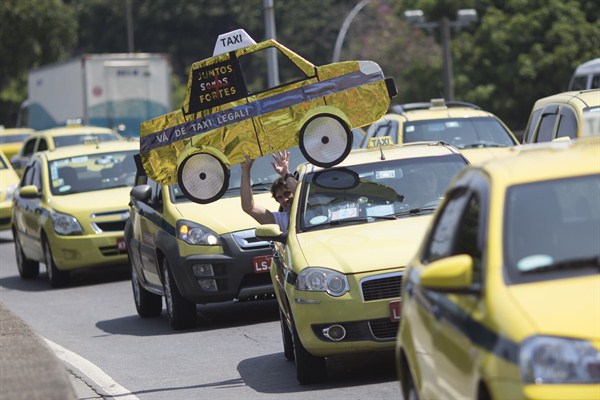What global phenomenon has emerged as a pressing dilemma for politicians from Mumbai to Montevideo, from Tuscaloosa to Fukuoka? It’s not climate change, ideological extremism or economic inequality. No, it’s Uber.
The overwhelmingly successful ride-sharing app is spreading its disruptive technology rapidly across the planet, creating a political crisis wherever it goes in the process. Uber has become a test of loyalties for elected officials torn between important segments of their constituencies, as well as a challenge to their political skills and a complicated experiment revealing their views about the role of government in society. At the same time, it is emerging as a litmus test for their openness to innovation and change.
Already Uber has been fully or partially banned in dozens of cities across the world. The service is illegal in parts of India, Thailand and Japan. It is severely restricted in places like Amsterdam and Brussels, and it continues to face all manner of obstacles just about everywhere it starts operating. Taxi drivers have held mass protests, some of them violent, and prosecutors have gone after the company’s executives. But Uber is not easy to stop. More importantly, millions of Uber customers and drivers don’t want it to be stopped.

